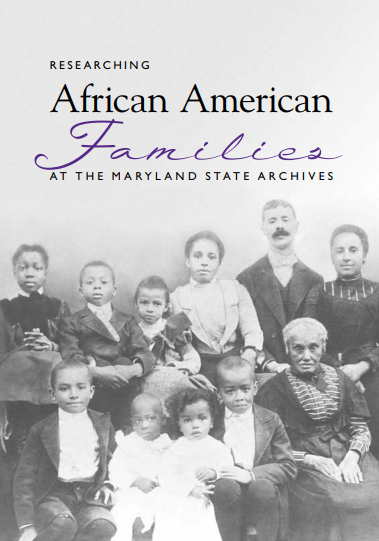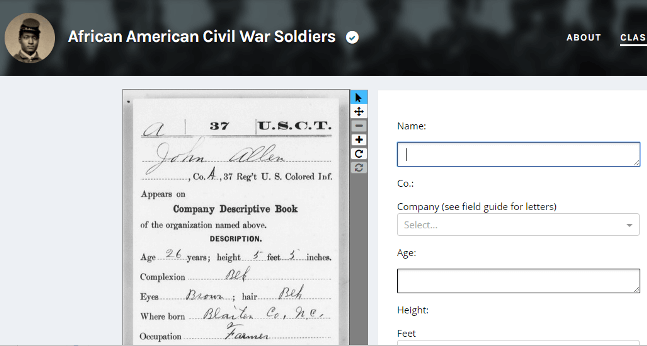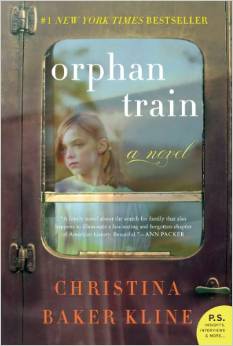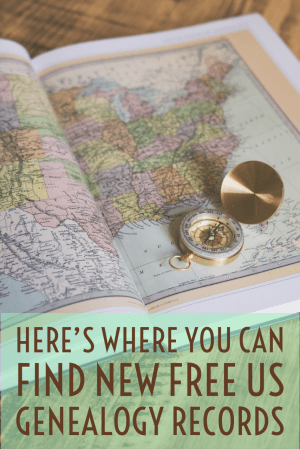Find US Ancestors In These New Online Resources
See if you can find U.S. ancestors using these new online resources (many of them free!): U.S. Supreme Court cases; an African American research guide; newspapers serving Illinois, Iowa, North Carolina and Texas; orphan train riders and Rhode Island burials since 1647. Also, your help is requested to help build an important database of African American soldiers in the Civil War.
Featured collection: U.S. Supreme Court cases
“More than 225 years of Supreme Court decisions acquired by the Library of Congress are now publicly available online – free to access in a page image format for the first time,” reported a recent Library of Congress press release. “The Library has made available more than 35,000 cases that were published in the printed bound editions of United States Reports (U.S. Reports).”
This collection is comprised of “official reports of decisions for the United States Supreme Court dating to the court’s first decision in 1791 and to earlier courts that preceded the Supreme Court in the colonial era,” or in other words, cases originally published in bound volumes 1-542. “This collection of Supreme Court cases is fully searchable. Filters allow users to narrow their searches by date, name of the justice authoring the opinion, subject and by the main legal concepts at issue in each case. PDF versions of individual cases can be viewed and downloaded.” We noticed this in a tweet from The Legal Genealogist Judy Russell, who makes a case for the genealogical value of Supreme Court cases in this article on her blog.
Find US ancestors in more new online resources
A new African American research guide
The Maryland State Archives has published a new guide, Researching African American Families at the Maryland State Archives. (Clicking on the link will take you directly to a PDF version of the guide). The introduction states, “A strong tradition of record keeping from the earliest days of settlement has resulted in the preservation of a vast amount of material relevant to African American history. This material can be found primarily at the Maryland State Archives in Annapolis, where the permanent public records of state, county, and local agencies are conveniently centralized. Records concerning African Americans, once neglected by professional historians and genealogists alike, provide new insights into the Maryland experience for people of color.”
Even if your African American roots are not in Maryland (or if your Maryland roots are not African American), you can still likely learn about important record types and research tips!
African American Civil War Soldiers Database
The African American Civil War Soldiers project recently launched an effort to build “a comprehensive database of the estimated 200,000 soldiers who formed the United States Colored Troops” during the Civil War. According to the website, this project aims “to improve our knowledge of the African Americans who fought for freedom in the American Civil War, to provide descendants of the soldiers with access to information on their ancestors, and to present students of history with primary documents from a pivotal moment in African American history.”
Volunteers are requested to help transcribe “images of the soldiers’ military service records, which have been photographed and scanned by the National Archives and Records Administration and Fold3. From these, we are collecting detailed individual information such as name, age, height, place of birth and enlistment, as well as evidence of battles fought, injuries and causalities sustained, and honors and promotions won.”
It’s easy to start transcribing: there’s no software to download or learn, and you don’t even need to register. If you click “Get started,” you’ll be taken directly to an image to transcribe (a quick series of pop-up screens will give you a quick orientation about the type of document you’ll be transcribing and how to do it). The example shown below comes from a “Company Descriptive Book, the first card in each soldier’s file. This card contains information on the soldier’s origins and enlistment.”
As an aside, we also noticed that the web host of the African-American Civil War Soldiers Database, Zooniverse.org, also has another volunteer project to transcribe the handwritten conference notes of U.S. Supreme Court justices.
Newspapers across the U.S.
Illinois and Iowa. Subscription site Newspapers.com has published issues of the Quad-City Times (Davenport, Iowa) dating from 1855-2014. This paper covers southeast Iowa and northwest Illinois. According to an email news release, “Newspapers.com also has a host of papers from the Quad-City Times family tree, including the Daily Leader, the Davenport Weekly Leader, the Davenport Weekly Democrat and Leader, Weekly Davenport Democrat, the Democrat and Times, the Daily Times, the Davenport Weekly Gazette, and the Democratic Banner. Some of these papers go all the way back to the 1850s, giving you more than 160 years of Iowa and Illinois history!
North Carolina. Digital NC continues to post new, free newspaper content on its site. Recent additions include the weekly The Hertford County Herald (Ahoskie, NC) for 1914-1923; More issues of the Watauga Democrat (Boone, NC, serving the western part of the state; coverage now spans 1923-1963); and the Cherokee Scout (Cherokee County)—now with nearly 2,500 issues from 1923-1971.
Texas. The Portal of Texas History website is adding more free newspaper content: the Cleveland Advocate and its sister publications, Dayton News and Eastex Advocate, and two other defunct newspapers – Illustrated Paperboy and Cleveland Journal. A news report describes the Portal of Texas History as “a gateway to Texas’s earliest history with newspapers dating back to 1829, seven years before Texas became a republic,” with 5.7 million individual newspaper pages, and “the largest single-state free digital repository in the nation for newspapers.”
Orphan Train riders
A new collection at subscription giant Ancestry.com, New York, Orphans Placed in the New York Foundling Hospital and Children’s Aid Society, 1855-1925, gathers the names of nearly 18,000 poor, abandoned or orphaned children who were placed under the care of New York City orphanages and eventually shipped to families in the western United States to be adopted. These children are popularly known as “orphan train” riders. According to the collection description, “Information as to the identities of a large number of these children has been preserved in federal and state censuses taken between 1855 and 1925, as well as in the 1890 New York City police census, and represents a potential boon to the descendants of these foundlings. This collection contains a two-volume work that encompasses the “Orphan Train Riders” from NYFH.” Tip: Have fun learning the stories of some of these children in Orphan Train by Christina Baker Kline, a NYT best-selling novel and a Genealogy Gems Book Club pick.
Rhode Island burials
The New England Historic Genealogical Society has announced a new database on its subscription website, AmericanAncestors.org. Rhode Island: Historical Cemeteries, 1647-2000 “includes 450,000 individuals buried in Rhode Island,” states a company email. “More than 900,000 names transcribed from tombstones are included. This database provides tombstone transcriptions, and birth and death records. Some entries include tombstone images and GPS coordinates.” The project is part of a volunteer-driven collaboration with the Rhode Island Historical Cemeteries Transcription Project.
Find US ancestors in more new online collections
Did you miss these recent announcements about US records that are new online? Check them out!
- New genealogy record collections from 15 U.S. states
- New North American collections include military, passenger lists, yearbooks and more
- Totally free US genealogy records from 8 states
Disclosure: This article contains affiliate links and Genealogy Gems will be compensated if you make a purchase after clicking on these links (at no additional cost to you). Thank you for supporting Genealogy Gems!

About the Author: Sunny Morton
Sunny is a Contributing Editor at Lisa Louise Cooke’s Genealogy Gems; her voice is often heard on the Genealogy Gems Podcast and Premium Podcasts. She’s known for her expertise on the world’s biggest family history websites (she’s the author of Genealogy Giants: Comparing the 4 Major Websites); writing personal and family histories (she also wrote Story of My Life: A Workbook for Preserving Your Legacy); and sharing her favorite reads for the Genealogy Gems Book Club.









